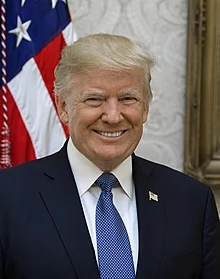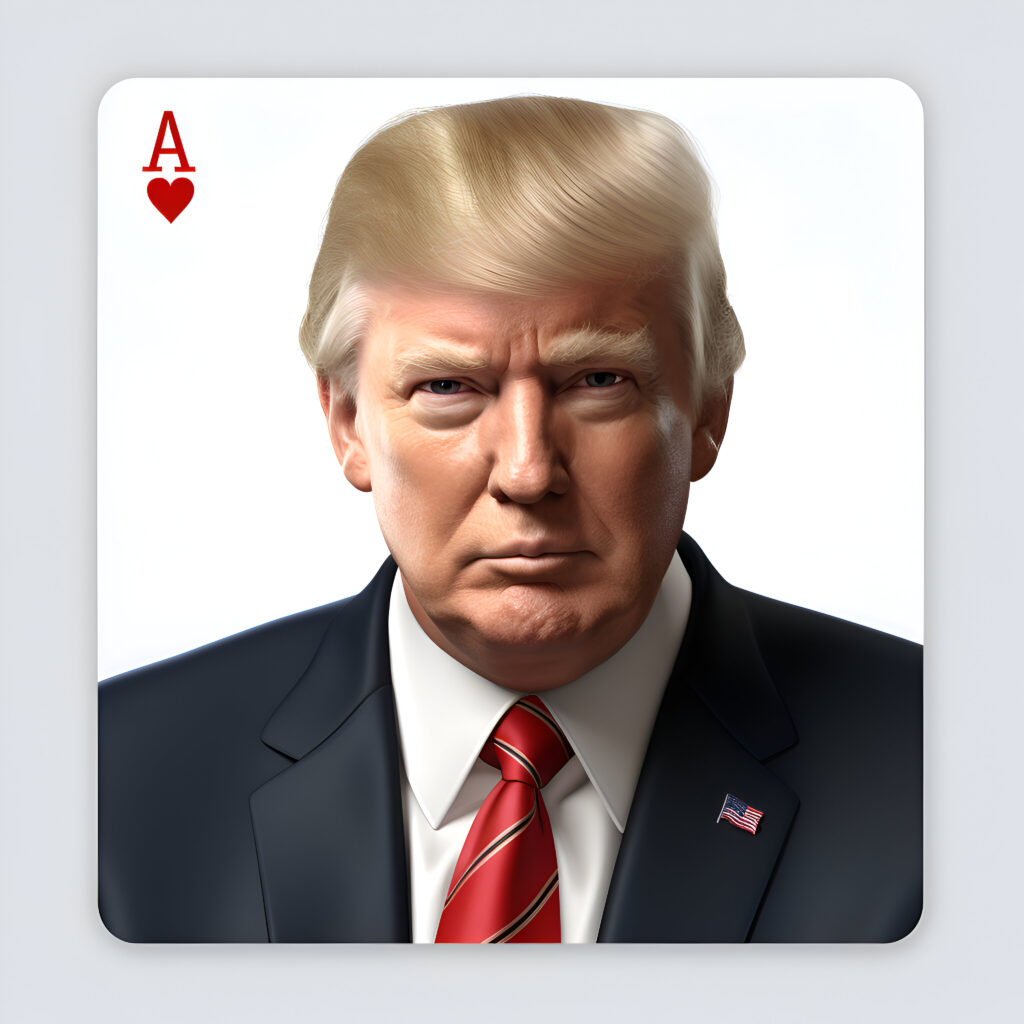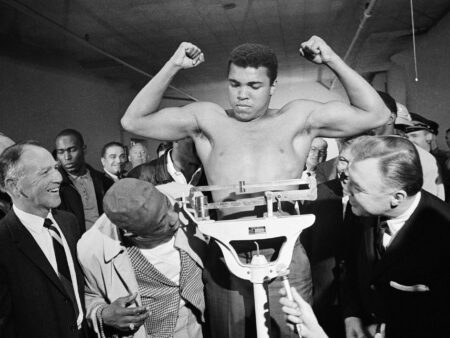President of America
Donald Trump, one of the most controversial and polarizing figures in recent American history, has left an indelible mark on business, media, and politics. From his beginnings in New York real estate to his rise as a reality TV star and ultimately to his presidency, Trump’s life story is a tale of ambition, resilience, and constant reinvention. Here’s an in-depth look at Donald Trump’s early life, career, presidency, and legacy.
Early Life and Family Background
Donald John Trump was born on June 14, 1946, in the Jamaica Estates neighborhood of Queens, New York. He was the fourth of five children born to Frederick Christ Trump, a successful real estate developer, and Mary Anne MacLeod Trump, a Scottish immigrant. Fred Trump was known for his disciplined work ethic and drive, qualities he passed on to his son Donald.
Donald grew up in a wealthy and traditional family, living in a spacious house in Queens. His father was a prominent developer of middle-income housing in New York’s outer boroughs, focusing on affordable apartments and smaller properties. Donald’s early life was shaped by privilege, but also by an expectation to succeed and expand on the family legacy.
Education and Military Academy
Donald Trump’s childhood education began at the Kew-Forest School in Queens. However, he was known to be energetic, competitive, and, at times, troublesome. At the age of 13, his parents decided he needed more structure, so they sent him to the New York Military Academy, a private boarding school in upstate New York.
Military school was a pivotal experience for Trump, instilling discipline and reinforcing his competitive spirit. He excelled in sports, particularly baseball, and earned leadership roles, eventually rising to the rank of captain. Trump’s experiences at the academy would influence his later approach to leadership, fostering a belief in hierarchy and assertive decision-making.
College Years and Entry into Real Estate
After graduating from the military academy, Trump attended Fordham University for two years before transferring to the Wharton School of the University of Pennsylvania. Trump often highlights his Wharton education, noting its reputation as a top business school. He graduated in 1968 with a degree in economics.
Shortly after graduation, Trump joined his father’s company, the Trump Organization. At that time, the Trump Organization managed a portfolio of middle-income rental apartments in Brooklyn, Queens, and Staten Island. Under his father’s guidance, Trump learned the ins and outs of real estate development, gaining experience in financing, property management, and construction. But he had his sights set on Manhattan’s upscale market.
Expanding the Donald Trump Empire in Manhattan
In the 1970s, Donald Trump took the Trump Organization in a new direction by focusing on high-profile properties in Manhattan, a market his father had largely avoided. His first major project in the city was the renovation of the Commodore Hotel, which he transformed into the Grand Hyatt New York. Trump secured a significant tax abatement deal with the city, showcasing his talent for negotiation and deal-making.
This project marked the beginning of his career as a luxury developer. Trump followed the Grand Hyatt success with another ambitious project: Trump Tower on Fifth Avenue. The iconic skyscraper, completed in 1983, quickly became a symbol of Trump’s brand, exuding luxury and exclusivity. Trump Tower established Trump as a major figure in Manhattan real estate, with subsequent developments including the Trump Plaza, the Plaza Hotel, and various casinos in Atlantic City.
Personal Life and Public Image
Donald Trump married Ivana Zelníčková, a Czech model, in 1977, and they had three children together: Donald Jr., Ivanka, and Eric. The Trumps were a prominent family in New York City, often appearing in tabloids and society pages. Trump’s flashy lifestyle, extravagant properties, and flamboyant personality further cemented his status as a celebrity businessman.
The 1980s were a period of rapid expansion for Trump, who diversified his business interests into hotels, casinos, and even an airline, Trump Shuttle. This aggressive growth, however, was accompanied by high levels of debt, leading to financial struggles in the early 1990s.
Financial Setbacks and Resilience
The early 1990s saw a downturn in the real estate market, leaving Trump with heavy debts from his Atlantic City casinos and other investments. Trump faced the possibility of bankruptcy and was forced to restructure much of his business. He negotiated with creditors to retain ownership of key assets, navigating through challenging financial waters and managing to avoid total collapse.
This period of financial struggle reinforced Trump’s public image as a resilient figure. His ability to rebound from setbacks added to his reputation as a “comeback king,” an image he would leverage in future ventures, including his eventual political career.
Reality TV and the Rise to Celebrity Status of Trump
In 2004, Trump’s fame skyrocketed when he became the host of The Apprentice, a reality TV show where contestants competed for a chance to work for him. The show’s popularity, combined with Trump’s signature phrase “You’re fired!”, turned him into a household name and a pop culture icon. Trump used his television success to further expand his brand, licensing the “Trump” name for various products, including hotels, residential towers, and even a line of steaks.
By the 2000s, Trump’s brand was synonymous with luxury, even as some of his ventures faced scrutiny or failed. His high-profile persona became one of his greatest assets, setting the stage for a transition to politics.
Political Career
The 2016 Presidential Campaign
In 2015, Trump announced his candidacy for President of the United States as a Republican. His campaign centered on economic nationalism, stricter immigration policies, and promises to “Make America Great Again.” His blunt, anti-establishment rhetoric and media savvy helped him secure the Republican nomination and win the 2016 election against Democrat Hillary Clinton.

Key Achievements and Policies
During his presidency, Trump implemented several notable policies and changes:
- Tax Cuts and Jobs Act: In 2017, Trump signed a significant tax reform bill, which reduced the corporate tax rate and offered cuts for many individuals.
- Supreme Court Appointments: He appointed three Supreme Court justices, shifting the court’s balance toward a conservative majority.
- Trade and Foreign Policy: Trump emphasized an “America First” policy, renegotiating trade deals and taking a firm stance against China. He also attempted diplomatic engagement with North Korea.
- Immigration Reform: Trump focused on tightening immigration laws, attempting to build a border wall with Mexico and enacting restrictive policies like the travel ban on certain countries.
Controversies and Impeachments in Donald Trump’s Life
Trump’s presidency was marked by numerous controversies:
- Russia Investigation: Special Counsel Robert Mueller investigated allegations of Russian interference in the 2016 election. Although the investigation did not establish collusion, it highlighted interference efforts and led to indictments of Trump’s associates.
- Impeachments: Trump was impeached twice—first in 2019 for abuse of power related to Ukraine and again in 2021 for incitement of insurrection following the Capitol attack. He was acquitted by the Senate both times.
- COVID-19 Response: Trump’s handling of the COVID-19 pandemic received criticism. While he facilitated vaccine development, his initial downplaying of the virus faced public backlash.
Net Worth and Business Ventures of Donald Trump
Trump’s net worth has been a subject of debate, with recent estimates placing it around $2.6 billion. His wealth primarily comes from real estate, golf courses, and branding deals. Although he has faced financial ups and downs, his brand remains valuable.
Legacy and Impact
Donald Trump’s legacy is a blend of controversy and accomplishment. His supporters commend his willingness to challenge the political establishment, citing his economic policies and judicial appointments. Critics argue his tenure deepened social and political divides in the U.S. Trump’s ongoing political involvement and his bid for the 2024 presidential election suggest that he will remain a central figure in American politics.








